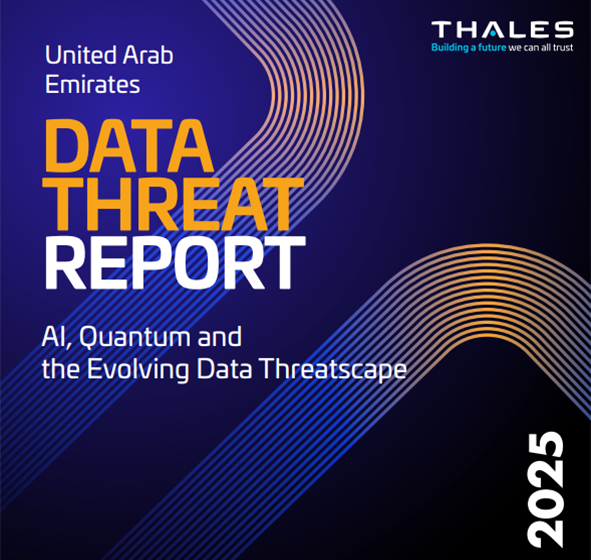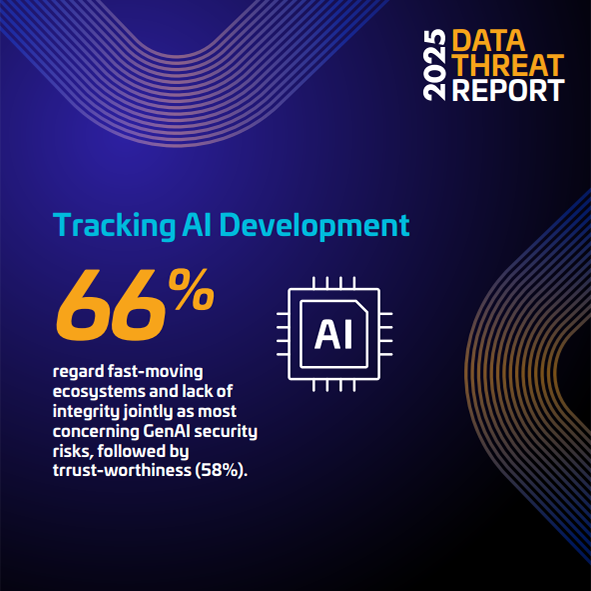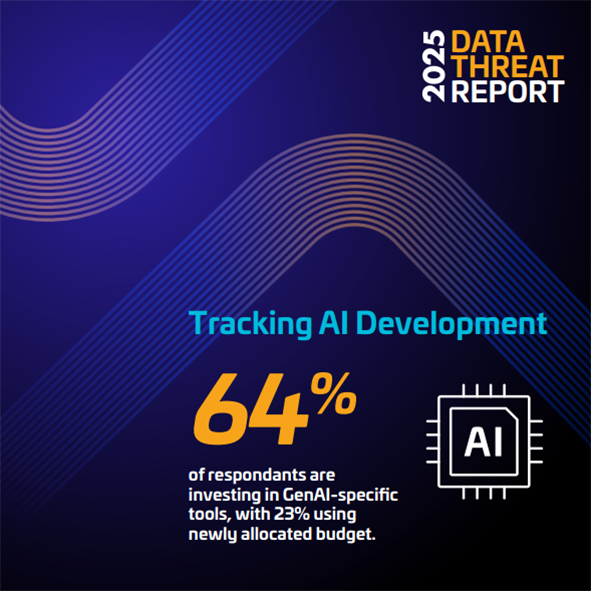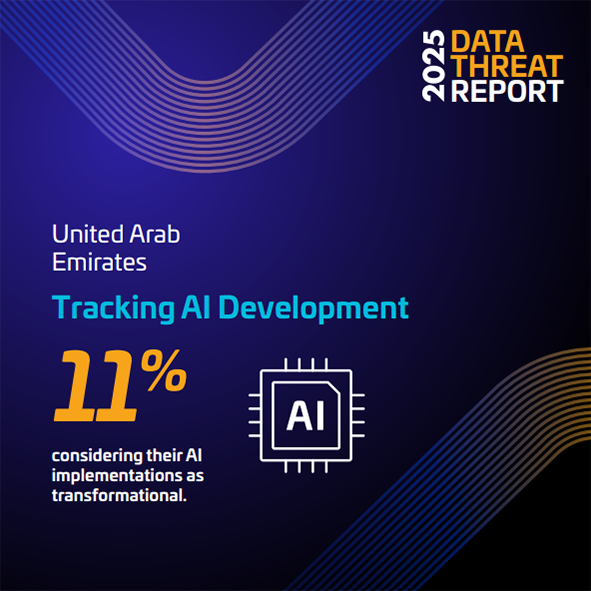Two-thirds of UAE Organisations say AI’s Fast-Moving Ecosystem is a Top Security Risk: 2025 Thales Data Threat Report

Among key findings in the UAE, 64% of the respondents said they are investing in AI-specific security tools with either new or existing budgets.
55% and 62% of the respondents identified future decryption of today’s data, and future encryption compromise as the major concerns, respectively, in quantum computing security threats.
Dubai, United Arab Emirates, 23 October 2025
Thales today released its 2025 Data Threat Report, revealing that two-thirds (66%) of organisations in the UAE see the rapid pace of Artificial Intelligence (AI) development, particularly generative AI, as their biggest security concern.
The annual study, conducted by S&P Global Market Intelligence 451 Research, covering more than 3,100 IT and security professionals across 20 countries and 15 industries, highlighted how technologies such as AI and quantum computing are reshaping data security priorities in the region.
Many organisations are already adopting GenAI, with 11% of UAE respondents indicating that it is actively transforming their operations. However, 58% find it difficult to trust AI given its fast-paced growth.
As GenAI becomes more deeply embedded in operations, organisations are moving from experimentation to large-scale deployment – often faster than their security frameworks can keep up. The report revealed how the drive for rapid transformation is outpacing efforts to strengthen data protection, leaving many at risk of creating new vulnerabilities even as they pursue innovation.
In line with these findings, security for generative AI is rapidly becoming a top investment priority worldwide, ranking second only to cloud security. In the UAE, 64% of organisations report investing in AI-specific security tools, either through new budgets or by reallocating existing resources. This trend reflects a growing awareness of AI-driven risks, and the importance of developing specialised defences to address them.
Vendors Pressed on Post-Quantum Readiness as Encryption Strategies Are Reassessed
The 2025 Thales Data Threat Report also shows rising concern among UAE organisations about quantum-related security risks.
Nearly two-thirds (64%) of respondents cited the vulnerabilities of key distribution, where advances in quantum computing could compromise the secure exchange of encryption keys. Almost as many as 62% warned of future encryption compromise, in which quantum computers may one day break current algorithms and expose data once considered secure.
A further 55% highlighted the “harvest now, decrypt later” (HNDL) risk, where encrypted data intercepted today could be decrypted in the future. In response, half of organisations are strengthening digital sovereignty through customer, regional, or global privacy mandates, while more than a third (35%) believe that robust encryption and key-management practices can provide sufficient protection.
Sébastien Pavie, VP Southern EMEA, Cybersecurity Products at Thales, said: “Organisations in the UAE are leading the way in adopting AI and cloud technologies, and are also increasingly aware that the speed of digital transformation brings new risks. GenAI, in particular, is changing how data is used and shared, which makes it even more important to think about security from day one.
“The UAE has set out some ambitious goals around AI and cybersecurity, and we’re proud to contribute to that vision. The focus now is on building systems that are secure by design, so innovation can continue with confidence. At Thales, we’re working with our partners and customers across the UAE to make sure encryption, identity protection, and data governance are part of every conversation surrounding AI and other technologies.”




















